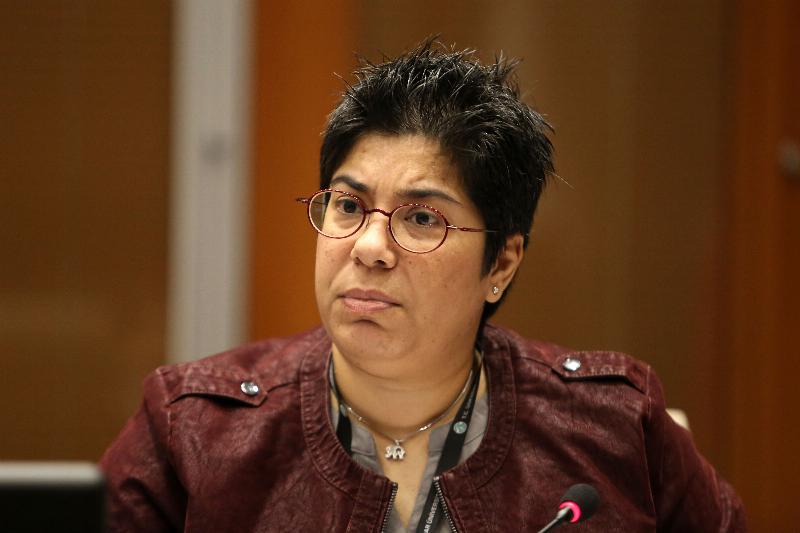The plane crash at Sabiha Gökçen Airport has caused many people who are afraid to fly to be anxious. Experts say that air travel is 266 times less risky than road travel, and negative news about aircraft and movies based on the accident trigger fear significantly.
Üsküdar University Faculty of Medicine Head of Clinical Psychology Department Psychiatrist Assoc. Prof. Gökben Hızlı Sayar made evaluations about passenger psychology based on the plane crash at Istanbul Sabiha Gökçen Airport.
10 percent of passengers experience intense fear
Sayar started by talking about the factors that triggered flight fears. She said; “Mark Twain has a famous saying: ‘Many people spend their lives suffering from tragedies that have never happened.’ Fear of flying is such a situation for many people, but it is a proportional and rational protection attitude towards a real danger. In some cases, fear acts as a protector by keeping the person away. However, if the level of fear increases, the person will panic and their reactions will be restricted. According to commercial airlines statistics, 1 out of every 4 passengers boarding the plane (24 percent) shows more or less symptoms of fear of flying, and 10 percent of them fear intensive flight. This fear affects the lives of many people and restricts the use of the airway in transportation, leaving the person and her/his environment in a difficult situation. Most flight-related news, such as plane crashes, and air piracy, reinforce fear of flying in people. In addition, in many films, plane crashes and hijackings are used as a theme of fear. In spite of this, we hardly come across articles and news that address the reliability and comfort of the flight. The fact that negative messages are so intense, triggers the fear of flying and reinforces the flight.”
266 times less risky than highway
Sayar stated that airline travels are less risky than other travel types. She continued by saying: “The first step in overcoming fear of flying is to have information about aviation. If an airplane is insecure, it is banned from flying anywhere in the world. When it comes to security in this sector, the expense is inevitable, every flight related event is checked many times. All of the commercial aircraft we board today have a backup system, so if a system does not work, another system will take over. This double safety also includes flight personnel. Airplanes are quite reliable, considering that many technicians before each departure did not check our car, we did not drive with a spare driver, and that many times more lives died in road crashes every year than plane crashes. To put it in numbers, the probability of accidents in road traffic is 266 times compared to the airway, and the risk of death from cigarettes is 4 thousand times higher than deaths due to flight. While the number of people traveling by air in 3 years is 3 billion, the number of people who died in plane crashes is less than those who died in 1 year from bee stings.”
Phobia is confused with cowardice
Assoc. Prof. Gökben Hızlı Sayar pointed out that the concepts of fear and phobia are confused in society. She said; “Despite having all this information, if the person's fear is excessive, meaningless and constant, even if there is a possibility of encountering this situation, and if this situation hinders the daily life and functions of the person, then we call the fear "phobia". Similarly, if the person is too afraid of the plane, cannot get on, avoids when one needs to board it or can endure the flight with a lot of trouble, that person has aviophobia. Phobia is not a condition of cowardice. Many people with aviophobia are brave, agile and successful in their daily lives. But aviophobia is a disease and its treatment is possible. Frequent flying of the person who is afraid of flight will help one to overcome the fear of learning and practicing relaxation and breathing exercises.”
Fear of flying can be treated in a short time
Sayar ended her words by addressing the fear of flight treatments: “In the treatment, it is primarily evaluated whether the person has other phobias, mental disorders such as depression, stress related disorders, substance use. Drug treatments or psychotherapies can be applied depending on the cause, severity and nature of the problem. In psychotherapies, it is possible to overcome the phobia by changing the negative perceptions and false thoughts about the flight, positive conditioning, systematic desensitization, relaxation techniques and overcoming it. With appropriate treatment, a success rate of 70 to 90 percent is achieved in a short time. Nowadays, major airline companies are implementing short-term and highly effective flight fear therapies.”
Üsküdar News Agency (ÜNA)
One out of 10 people have intense fear of flying!
Share
Update Date: June 20, 2023
Creation Date: February 13, 2020
Request a Call
Other News
- The second meeting of the “Entangled Histories” seminar series was held
- Irish poetry and identity discussed at the Entangled Histories Seminar
- Prof. Nevzat Tarhan: “Crises will lead to new awakenings through exploratory hopelessness”
- Disasters and the climate crisis are triggering youth volunteering
- The “2nd New Media and Family Workshop” held in Üsküdar


